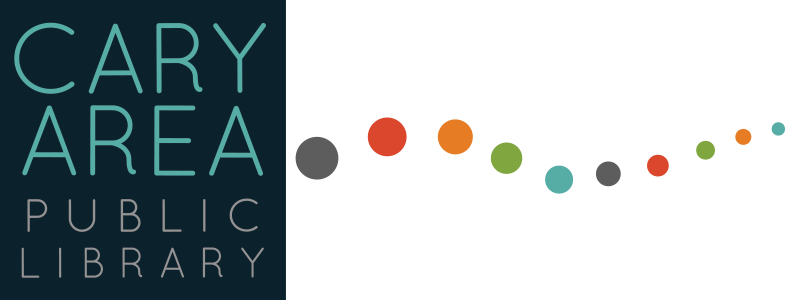It is budget time for the library and that means a discussion on income for the library, which is primarily through the property tax system. Property tax is a local tax imposed by local government taxing districts (e.g., school districts, library districts, municipalities, counties) with the concurrence of the voters and administered by local officials, in the Cary Area Public Library District that is the elected members of the Library Board of Trustees. Property taxes are collected and spent at the local level.
The property tax system can be confusing to people. There is a voter-approved tax rate that is capped per law to the consumer price index. There are also the county and township assessors who determine the value of your property, and then there is the tax levy. During the levy process, taxing districts determine the total amount of revenues that they need to raise from property taxes, hold any required Truth-in-taxation hearings, and certify levies to the county clerk. The tax levy is based on the total tax in the district. If new tax sources have become available, a levy may be increased without an existing individual property owner seeing any increase in their tax. To help our patrons understand this issue better, we have added FAQs below to explain the process that all local governments must follow.
Tax Levy FAQs
The following responses to frequently asked questions regarding the levy process are provided to assist in understanding how the levy process works and its importance.
What is a Levy?
The amount of money a library district requests from the total property tax. A levy increase or decrease does not necessarily mean your taxes are changing.
What is EAV?
EAV refers to the Equalized Assess Value of properties as determined by the local and county assessors and used for determining and allocating the extended property taxes.
What is CPI?
The Consumer Price Index (CPI) is an index published by the federal government as a measure of annual inflationary impact on a district. The CPI factor used for computing the amount of property taxes and related revenue for the district is the rate fixed at the beginning of the tax year, not the end of the tax year. Due to “Tax Cap” legislation, the CPI percentage increase cannot exceed 5% in any year.
What is New Property?
New Property is property within the district boundaries that has been newly developed and initially assessed during the tax year. New property may cause a levy to increase from the previous year.
What is an extension?
The total extension is the product of the district’s EAV multiplied by a calculated tax rate and is equal to the total property tax billings on the district’s behalf. The County Clerk calculates the tax rate needed to raise the revenue (Levy) certified by each district in the County.
What is The Truth in Taxation Act?
Legislation that provides procedures for Public Notice and Public Hearings on the Tax Levy Increase requests greater than 105% of the prior year’s extension.
What is The Property Tax Extension Limitation Law?
The Property Tax Extension Limitation Law, commonly referred to as “TAX CAP,” limits the increase in property Tax Extensions to 5% or the Consumer Price Index (CPI), whichever is less, not counting new construction or Bond & Interest Obligations.
Why is the District proposing a levy which is higher than the limits of the Property Tax Extension Limitation Law?
Under the Property Tax Extension Limitation Law if districts under levy, it is impossible to recapture the lost revenues. As of the time when the Levy is required to be submitted, three very important facts are unknown to the District: 1) The tax rate determined by the county assessor 2) The New Construction in the district (EAV) 3) Total EAV within the district boundaries.
Do most districts levy for more than expected in their initial request?
Yes. In the Greater Chicago Suburban area for the same reason stated above. Districts do not know the “New Rate,” “New Construction EAV,” or “Total EAV” at the time they must approve the levy.
Will my taxes go up by the same percentage that the levy increases?
No; without consideration of exemptions, changes in EAV, property tax for existing taxpayers would increase by the CPI for the year.
